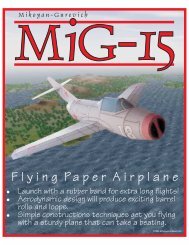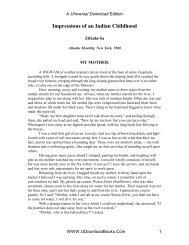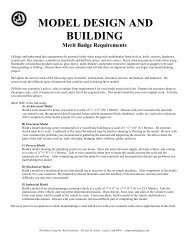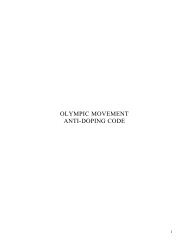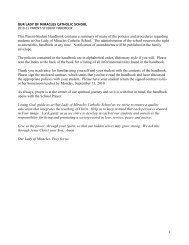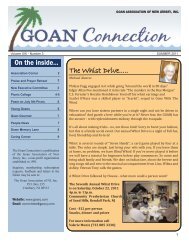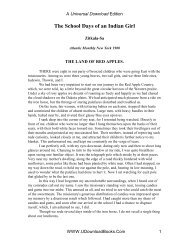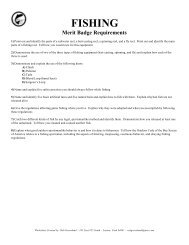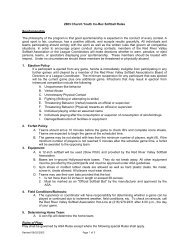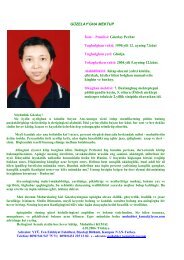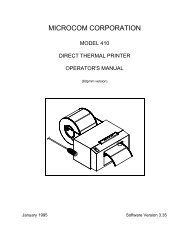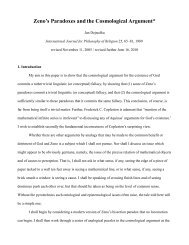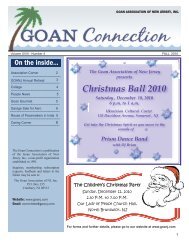Dummett's Backward Road to Frege and to Intuitionism - Tripod
Dummett's Backward Road to Frege and to Intuitionism - Tripod
Dummett's Backward Road to Frege and to Intuitionism - Tripod
Create successful ePaper yourself
Turn your PDF publications into a flip-book with our unique Google optimized e-Paper software.
Recalling the forced choice argument, Dummett says his saying-showing gloss is merely a<br />
“suggested...possible re<strong>to</strong>rt <strong>to</strong> Russell” (1981a: 131, citing 1981: 227). The re<strong>to</strong>rt is that even if Russell<br />
is right that we cannot refer <strong>to</strong> a sense, it may still be the case that when we “say” a reference, we<br />
thereby “show” the sense we choose <strong>to</strong> use. Again, Dummett might as well say that <strong>Frege</strong> introduces<br />
references in order <strong>to</strong> explain how we can identify senses. Surely the opposite is true: when we “say” or<br />
express a sense, we thereby “show” how <strong>to</strong> identify the reference (if any); compare Dummett (1981a:<br />
132).<br />
Dummett suggests that Russell’s argument is more plausible if what he really has in mind is not<br />
objects of reference but objects of apprehension. Now, Russell does begin <strong>and</strong> end “On Denoting” with<br />
early statements of his distinction between knowledge by description <strong>and</strong> knowledge by acquaintance<br />
(1971: 41, 56). But Russell’s argument against <strong>Frege</strong> concerns only denoting phrases, <strong>and</strong> knowledge<br />
by denoting phrases is precisely what Russell is distinguishing from acquaintance (1971: 56). Thus the<br />
suggestion is not what Russell has in mind. But it does reveal what Russell’s argument is logically most<br />
deeply about. It is deeply perceptive of what the argument should have been, but was not. Whether we<br />
can single out senses at all is what Russell’s argument is logically most deeply about, though Russell’s<br />
focus is on denoting, in keeping with Russell’s linguistic turn in “On Denoting.” I would rewrite<br />
Russell’s argument this way. <strong>Frege</strong> distinguishes his categories of references, senses, forces, <strong>and</strong> <strong>to</strong>nes<br />
in terms of how the entities essentially function, so as <strong>to</strong> explain basic features of language. It is<br />
because modes of presentation do not function as objects of presentation that they, <strong>and</strong> thereby senses,<br />
cannot be cus<strong>to</strong>mary references. The moment they are treated as objects of presentation, they are no<br />
longer functioning <strong>to</strong> present something else, <strong>and</strong> in that sense they are no longer modes of<br />
presentation (compare Dummett 1981a: 132). Thus whenever we try <strong>to</strong> single out a sense, we must<br />
single out an object instead. <strong>Frege</strong> would reply that we directly grasp only modes (or senses), but can<br />
grasp them only as modes (or senses). It is a subtle issue. My theory of qualified objects goes between<br />
31



